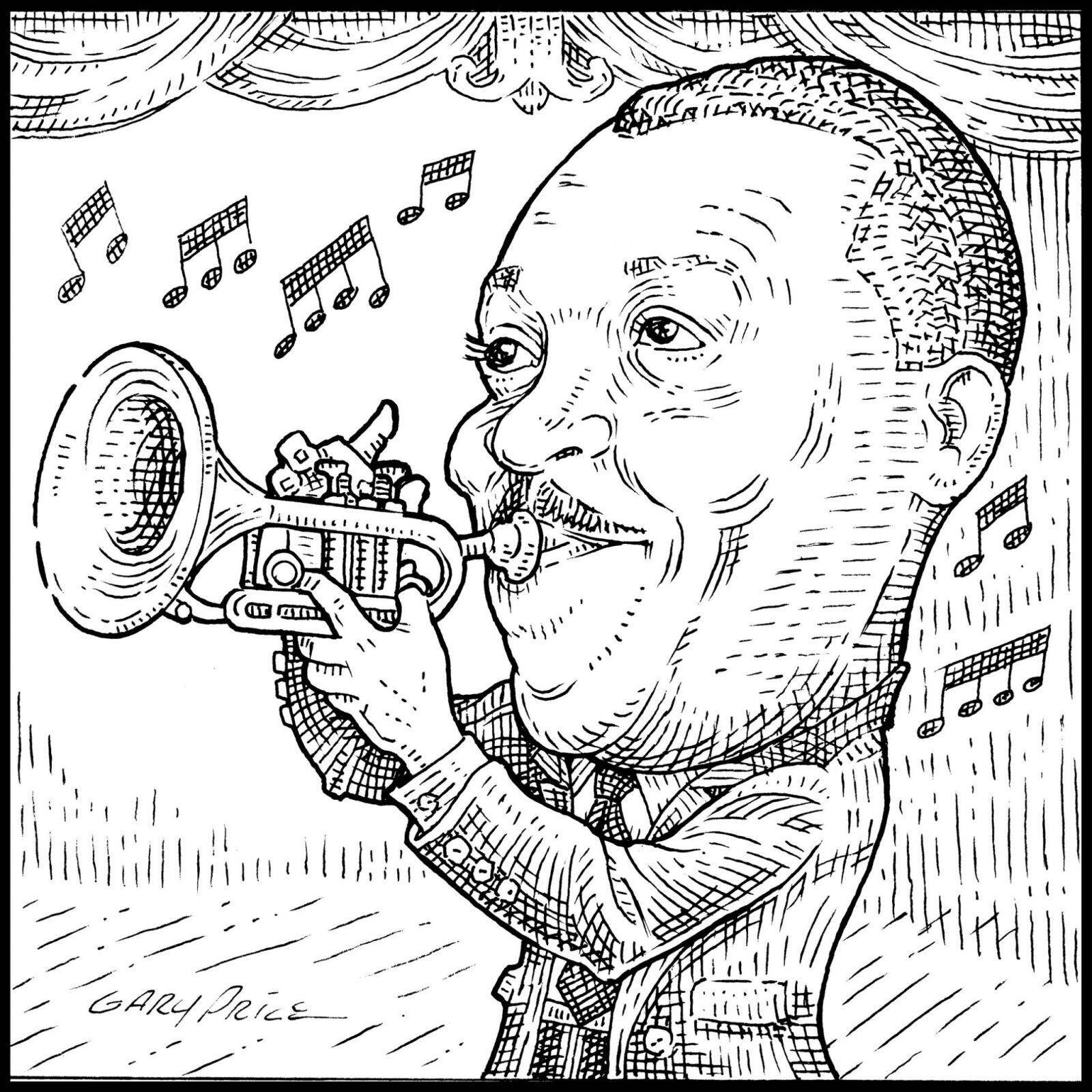 Charles Melvin “Cootie” Williams was born in Mobile, Alabama, on either July 24, 1908 (according to Encyclopedia Britannica) or July 10, 1911 (according to Wikipedia). His nickname came about when his father took him to a band concert. After the concert, when his father asked young Charles what he’d heard, he replied, “Cootie, cootie, cootie.” He was “Cootie” thereafter.
Charles Melvin “Cootie” Williams was born in Mobile, Alabama, on either July 24, 1908 (according to Encyclopedia Britannica) or July 10, 1911 (according to Wikipedia). His nickname came about when his father took him to a band concert. After the concert, when his father asked young Charles what he’d heard, he replied, “Cootie, cootie, cootie.” He was “Cootie” thereafter.
Cootie first played professionally with the Young Family Band (which included the future tenor sax superstar Lester Young) when he was 14. In his later teens, he settled in New York and worked with James P. Johnson, Chick Webb, and Fletcher Henderson.
He achieved his greatest fame when he took over the trumpet chair (vacated by the ailing Bubber Miley) in Duke Ellington’s Orchestra. Like Miley, Cootie Williams was an expert at getting the “growl” out of his horn using a plunger mute. His style echoed the raucous tones achieved by trombonist Joe “Tricky Sam” Nanton, and worked perfectly within the context of Ellington’s early 1930s “Jungle” sound.
Ellington appreciated Cootie and wrote compositions highlighting his particular talents, most notably “Concerto for Cootie” (aka “Do Nothing ’Til You Hear From Me”). His style became so identified with Duke Ellington’s band that when he was hired away by Benny Goodman in 1940, Raymond Scott wrote a mock-bathetic piece, “When Cootie Left the Duke.”
In 1941 Cootie Williams formed his own band featuring many of the players in the vanguard of bop, including Charlie Parker, Eddie “Lockjaw” Davis, Bud Powell, and Eddie “Cleanhead” Vinson.
In the late 1940s, as the big band business faded, Cootie’s own fortunes suffered as well. He had endured a case of smallpox (caused by the vaccination supposed to prevent it), and in the post-Swing Era economic climate it became increasingly less feasible for him to keep a band going. He veered into rhythm and blues (and out again) and worked with small combos through the 1950s.
By 1962, he was back with Duke Ellington as a key sideman and enjoyed the financial stability of that position until after the leader’s death in 1974.
Cootie Williams, the last surviving member of Duke Ellington’s 1920s band, died in New York on September 15, 1985.
Andy Senior is the Publisher of The Syncopated Times and on occasion he still gets out a Radiola! podcast for our listening pleasure.




















